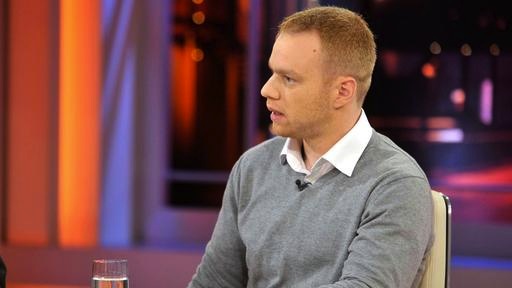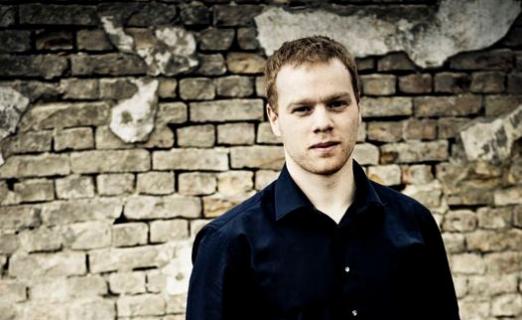From Neo-Nazi to Baptist Pastor
From Neo-Nazi to Baptist Pastor


Berlin – Johannes Kneifel is studying theology at the Theological Seminary of the Baptist Union at Elstal (near Berlin). In 2013 he hopes to become a Baptist pastor. His fame extends far beyond the Free Church because of his appearances on talk shows in Germany, his lectures and a book about his life. At the age of 17 he was a neo-Nazi and had beaten a man to death. Since then, he has turned his back on his past, become a Christian and warns against the culture of neo-Nazism. EBPS reporter Klaus Rösler introduces us to the 30-year-old:
 Johannes Kneifel joined the neo-Nazis in Celle at the age of 13. He was looking for heroes who could give purpose and meaning to his life. At home, there was no security. “My parents were very sick, handicapped, poor and socially isolated,” he remembers. His father was unemployed; his mother had multiple sclerosis. He scorned his father as a loser, his mother as a cripple. At school, he felt alone and ashamed of his background. Then he met the right-wing extremists. “You are from the master race; you are part of the elite,” they told him. That made him happy. To have “normal people” as enemies because of his national-socialist convictions made him proud. He hated foreigners after a few youths beat him nearly to death when he was 15. He drank, got into fights, and became more and more extreme.
Johannes Kneifel joined the neo-Nazis in Celle at the age of 13. He was looking for heroes who could give purpose and meaning to his life. At home, there was no security. “My parents were very sick, handicapped, poor and socially isolated,” he remembers. His father was unemployed; his mother had multiple sclerosis. He scorned his father as a loser, his mother as a cripple. At school, he felt alone and ashamed of his background. Then he met the right-wing extremists. “You are from the master race; you are part of the elite,” they told him. That made him happy. To have “normal people” as enemies because of his national-socialist convictions made him proud. He hated foreigners after a few youths beat him nearly to death when he was 15. He drank, got into fights, and became more and more extreme.
On August 19, 1999, he and a buddy attacked Peter Deutschland, a needy person, after the two of them had gotten dead drunk on a playground. They both knew their victim because he had often, as a “hippie”, gotten into arguments with them. He told them they should “drop the crap with the skinhead act” and both were angry about this. They kicked his door in and beat him brutally. Even after he was lying on the floor, Johannes Kneifel kicked him again with his heavy boots. The two destroyed his telephone, so that he couldn’t call for help. When neighbors at last heard the 44-year-old’s cries for help, it was too late. He died of his injuries in the hospital the next day.
On that same day the two were taken into custody and later each was sentenced to 5 years in juvenile detention for joint assault resulting in death. “I am ashamed,” acknowledges Johannes Kneifel today. He knows he cannot reverse the deed or make up for it. To have taken a man’s life, “and to deal with the finality of this fact is extremely difficult”.
In youth detention in Hameln, he continued to be considered “dangerous and violent”. But there he also had other experiences. He made friends with fellow inmates—foreigners who didn’t show prejudice against him. And he went to church: “At first, the church service was just a time for me to do something different. To get out for a couple of hours and drink some coffee.” But he also met Christians behind bars who cared about him, even though they knew what he had done: “But they saw me as a person anyway.” During a worship service in 2003, he suddenly heard God speak to him directly: “He said, “Johannes, you have to decide whether you will let me into your life.” I had never learned to trust anyone before, but now I felt a physical and mental weight fall from me. God wanted to forgive me.” In his cell, he fell to his knees and prayed. And he felt deep joy and peace fill him. He knew, “God has forgiven me.” From that moment, he began reading the Bible regularly.
 After his release, he completed his university studies. He had nearly all A’s. Seeking committed Christians, he joined the Baptist church in Hameln. His apartment was practically next door to the church. At first, he wanted to study engineering. But in praying, it became clear to him that he should study theology at the Elstal Theological Seminary. He did a one-year internship in a church, which confirmed to him that he was on the right track. Along with his studies, he speaks out in public events against the danger of right-wing extremism and also invites people to faith in God.
After his release, he completed his university studies. He had nearly all A’s. Seeking committed Christians, he joined the Baptist church in Hameln. His apartment was practically next door to the church. At first, he wanted to study engineering. But in praying, it became clear to him that he should study theology at the Elstal Theological Seminary. He did a one-year internship in a church, which confirmed to him that he was on the right track. Along with his studies, he speaks out in public events against the danger of right-wing extremism and also invites people to faith in God.
His withdrawal from the neo-Nazi scene is notsomething to be taken for granted. His accomplice is still involved. Hecontinues his activities of assault and provocation. In 2009, he was again sentenced to 14 months of confinement for grievous bodily harm.Johannes Kneifel is grateful for this second chance. The book he has written about his life is called “From Saul to Paul: Skinhead, Violent Criminal, Pastor – My Three Lives”. The second edition has just come out. As a pastor he hopes to continue to warn against the danger of extreme-right thinking.